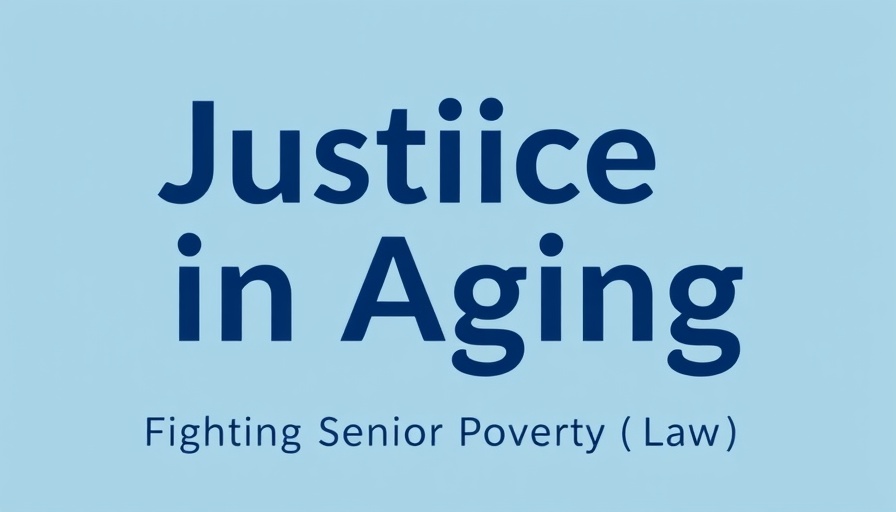
A New Era for Long-Term Care: Understanding the Landscape
As we move into 2025, the conversation surrounding long-term care for residents in nursing facilities has intensified. This stems not only from legislative measures aimed at funding cuts but also from growing awareness of the importance of ensuring that vulnerable populations, particularly seniors and those living with disabilities, receive adequate support. The upcoming changes in Medicaid legislation highlight the interconnectedness of healthcare coverage and the well-being of older adults. With nearly half of all Medicaid spending directed towards this demographic, it becomes essential to advocate for robust Medicaid protections.
Legislative Challenges Ahead: Budget Cuts and Their Implications
The legislative landscape has seen significant efforts to cut Medicaid funding, which directly impacts millions of individuals, including seniors reliant on long-term care services. Currently, around 10 million people with disabilities and 7 million elderly individuals depend on Medicaid. Addressing this issue is critical as any substantial budget cuts could diminish access to life-saving services such as nursing facility care and home healthcare support. Moreover, the complexities of securing disability confirmation can leave many individuals in precarious situations, highlighting the need for supportive policies that prioritize their needs.
The Role of Medicaid in Long-Term Care: What You Need to Know
Medicaid offers more than just medical services. It provides crucial support for life-sustaining elements such as nursing facility care, home and community-based services, and even non-emergency medical transportation. Many people might not realize the breadth of these services, particularly as Medicare does not cover many long-term care needs comprehensively. As these discussions about necessary services unfold, it is imperative for seniors and their families to stay informed about the potential changes that might affect their eligibility and benefits.
Impact of Legislative Decisions on Seniors and Their Families
For seniors, the implications of proposed legislative changes can be far-reaching. As they navigate complex healthcare needs, understanding the potential shifts in Medicaid rules and funding is vital. The current climate suggests a push towards limiting access to necessary services, which could force older adults to seek out alternatives that may not be as supportive or holistic. Families must advocate for their loved ones, ensuring that their needs are adequately represented in policymaking discussions. This advocacy can foster a community of support aimed at preserving the quality of care for residents in long-term care facilities.
Future Trends: Advocating for Change in Long-Term Care
Heading into the future, advocacy will play a pivotal role in shaping the policies that affect long-term care facilities for seniors. Organizations, caregivers, and family members must unite to ensure that the voices of older adults are not silenced as lawmakers make decisions that could impact their lives. Education on the importance of funding for long-term care services will become increasingly important as the landscape continues to evolve.
Strategies for Effective Advocacy
To protect long-term care residents, advocacy must involve clear strategies aimed at influencing legislation responsibly and effectively. Joining local advocacy groups, engaging with policymakers, and utilizing social media can amplify the cause of long-term care residents. Awareness campaigns that educate the public on the legislative challenges seniors face can also create momentum for change, ensuring that seniors' voices are heard during critical voting periods.
Conclusion: The Power of Advocacy for Our Seniors
As we approach 2025, it's clear that the fight for long-term care residents is far from over. With the looming threats from potential Medicaid cuts, it’s more vital now than ever to advocate not just for basic funding, but for a broader understanding of the needs of older adults. By championing these issues, we can ensure that they continue to receive the quality care and support necessary for their dignity and independence. Join the conversation, educate others, and push for policies that support our seniors.
 Add Row
Add Row  Add
Add 




Write A Comment